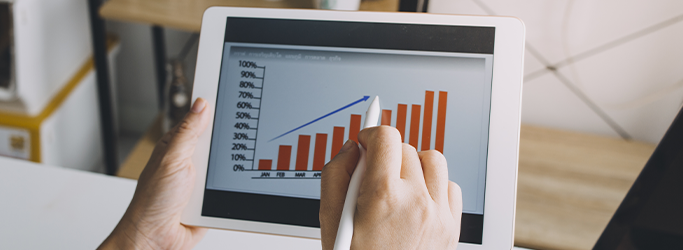Investing | Money Basics
Bond vs. stock market: Everything you need to know

Investing is now accessible to all. With a small capital and the right knowledge, you can unlock many investment opportunities right at your fingertips.
Two of these fall under the bond market and the equity market. But before you start investing in these financial instruments, you need to understand the difference between these two options.
The bond market
Also known as fixed income securities, are where loan investments are bought and sold. This is often done by large organizations and individual investors.
Think of it as lending money to someone. Market performance does not change the fact that someone owes you money. That person is bound to pay you back the original sum plus interest no matter what, unless the market collapses. And if that person goes bankrupt and is forced to liquidate assets, he or she is still bound to pay you off.
The same example applies to the bond market. Bond investments are less likely to fluctuate than the stock market. And should the debtor cease to operate and liquidate its assets, bondholders (aka investors) are the first to get paid to recoup their losses.
Because bonds are not cash instruments, they are ideal for investors with at least moderate risk tolerance as these investments offer lower returns compared to other financial instruments.
Here are a few bond market investments in the Philippines:
-
Government treasury bonds (or government bonds)- The government owes the person or organization (i.e. the bearer) holding government bonds. These have lower returns than corporate bonds since they have a lower risk because they are backed by the government.
-
Corporate bonds- Firms and corporations issue bonds to investors in order to fund their capital improvements, expansions, and the like.
-
T-bills- Also known as treasury bills, t-bills are short-term fixed income securities issued by the Republic of the Philippines through its Bureau of Treasury.
-
RTBs- Retail treasury bonds are medium- to long-term investments issued by the government as a part of their savings mobilization program to make securities available to retail investors.
The stock market
The stock market, on the other hand, is also known as the equity market. Here, stocks of publicly listed companies are bought and sold. In the Philippines, the Philippine Stock Exchange is the sole marketplace for stock exchange.
Investing in the equity market is like owning part of a business. As part-owner, you are entitled to the profits of that organization, which can be a lot more than what you initially paid to become the owner.
When a business is successful, it can mean greater returns. However, this also means that should the business fail, you may not get your money back from investing in this organization.
Social, political, and economic changes can affect market movement, making it a risky investment. Because of the volatile nature of the stock market, there’s no assurance of profit gains. The equity market is seen as the riskier option for first-time investors, but it has the potential for higher returns than other investments in the bond market. After all, the higher the risk, the higher the reward.
Here are some ways you can access the stock market in the Philippines:
-
Unit Investment Trust Funds (UITFs)- Invest in stocks through equity funds managed by investment professionals of a bank or a Trust entity
-
Shares of stocks- Purchase stocks through a broker or any online trading platform.
To sum it up, you can invest in either the bond market or the stock market. If you want to play it safe and prefer slow-growing but low-risk investments, research on investment instruments that fall under the debt market. But if you want to see higher returns and have the stomach for high risk investments, then take a look at what the equity market has to offer.
Start investing meaningfully today. Download the earnest app, go to https://earnest.ph/, or head to the nearest Metrobank branch to get started.
For existing investors, you may enroll your UITF account in UITF online in MBO to gain 24/7 access to it.
More Smart Reads